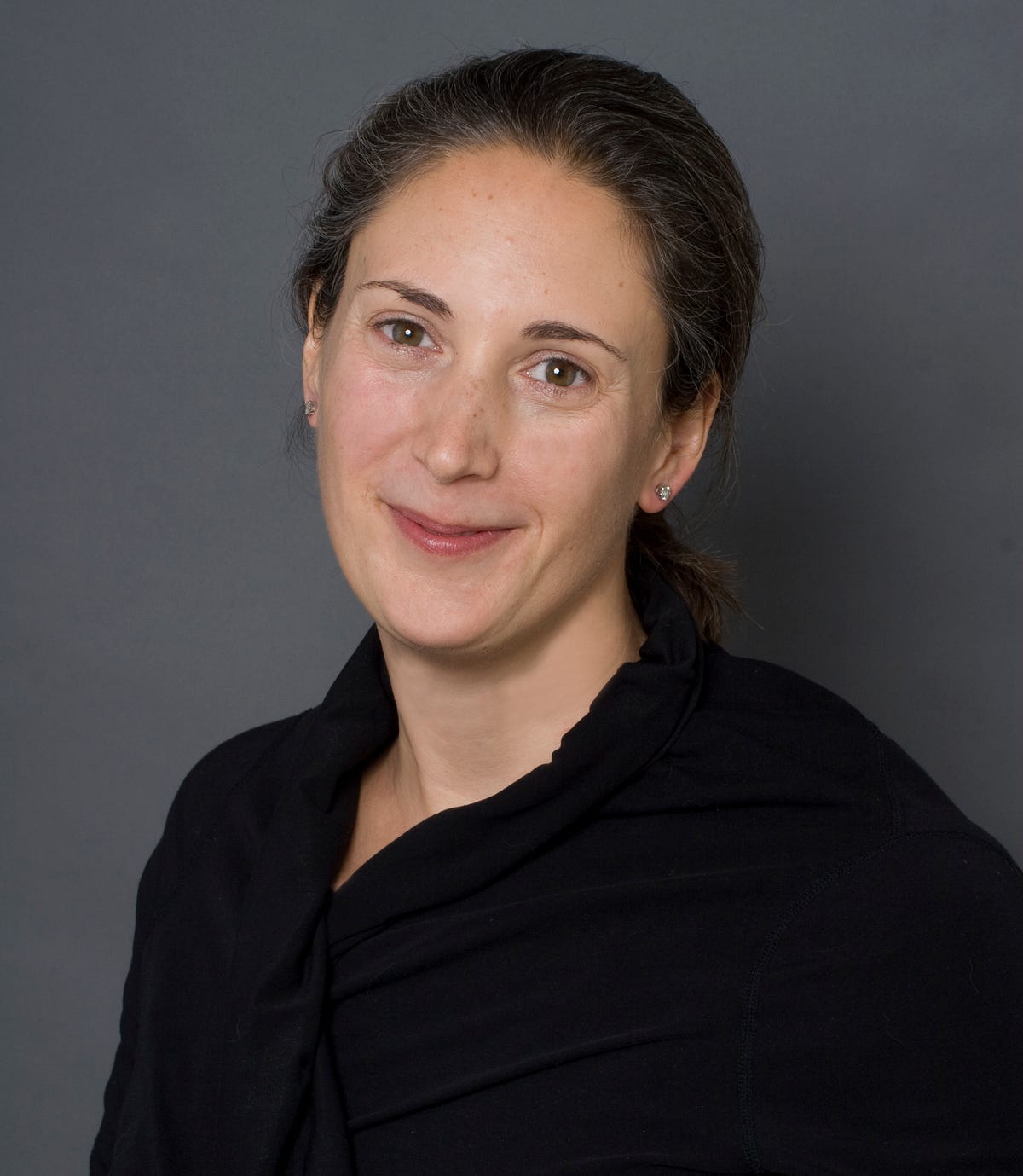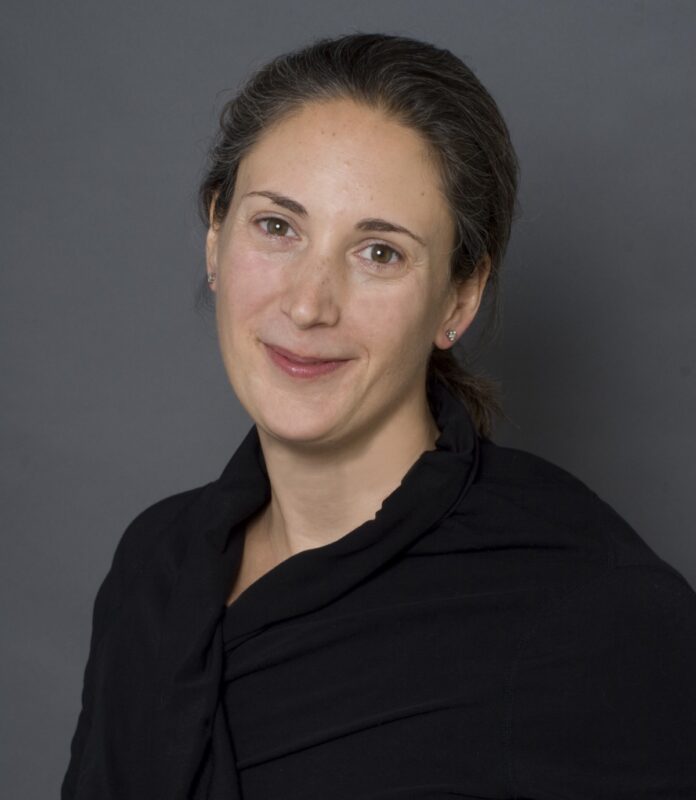Getting Creative With Impact Investing With Laura Callanan of Upstart Co-Lab

“Creative people solve problems. I trust them to be braver, work harder, and be more intuitive about how to do that well more than I could ever be. I am using all the opportunities I have been given — and pulling together everything I’ve learned in my eclectic career — to make it as easy as possible for creative people to do their work at scale.”
I had the pleasure of interviewing Laura Callanan, founding partner of Upstart Co-Lab. Upstart is connecting impact investing to the creative economy. Laura has previously been senior deputy chair of the National Endowment for the Arts, a consultant with McKinsey & Company’s Social Sector Office, and deputy chief investment officer of the Rockefeller Foundation.
Thank you so much for doing this with us! What is your “backstory”?
I majored in theater in college — and then took a 25 year detour into investing, impact investing, philanthropy and social innovation. I married a playwright and novelist, and have gotten to know many of the greatest actors, painters, composers, and writers in America. When my colleagues at McKinsey & Company, the United Nations and the Rockefeller Foundation talked about bringing more creativity to solve the world’s problems, I knew what creativity really meant. Now I am trying to make sure that creative people can access the capital they need to scale their truly creative solutions to our problems — and to help seize new opportunities.
Can you share the funniest or most interesting story that happened to you since you started your company?
Drinking scotch with Yo-Yo Ma and experiencing a super creative, curious and hungry brain at work. He knows what he is doing to such a level that he describes calibrating his playing to the acoustics of each concert hall, and only playing what he knows can actually be heard in that venue. And he describes this as “lazy” behavior — not playing more than he has to.
Photo of me with Yo-Yo at the launch of Upstart Co-Lab:

What do you think makes your company stand out? Can you share a story?
Impact investing is on a rocket ship, growing by many multiples over the past 10 years and already at $8.7 trillion of assets under management in the US. Amazingly, only Upstart Co-Lab is focused on connecting this type of capital to the 21st century creative economy.
Upstart Co-Lab stands out because we bring the artists and creatives themselves into the rooms with the impact investors, and let them both realize that while it seems like they are different, they share multiple commonalities — they care about the human condition and they can help each other do something about it.
At the Upstart launch in 2016, we brought 25 artists, 25 social innovators and 25 impact investors together for the day. No one knew everyone but me. We started the day with the artists leading small groups in music making, art making, food making, poetry making — it could have been a disaster! In the afternoon, the innovators and investors were in the lead. Everyone stayed for the whole day and I got dozens of notes from people telling me that was the best convening they had every been part of. People who were there still say that to me even two years later.
None of us are able to achieve success without some help along the way. Is there a particular person who you are grateful towards who helped get you to where you are? Can you share a story?
The spark that turned into Upstart Co-Lab started with a lunch I had with Jim Houghton, the founding artistic director of Signature Theatre in NYC. I have shared the story many times. (VIDEO LINK). I realized that for some reason, artists are not recognized as social entrepreneurs. And when I went out to study the question, I realized that artists might be overlooked, but were absolutely social entrepreneurs. I discovered that artists and other creatives were increasingly starting social purpose businesses (here are 21 artist innovators we admire), and needed access to what every other entrepreneur in order to succeed. And slowly I began to try to do something about it.

Are you working on any exciting projects now?
We are. We are launching the first impact investment fund for the inclusive creative economy with a fabulous strategic partner. Stay tuned for more in the fall.
How have you used your success to bring goodness to the world?
Creative people solve problems. I trust them to be braver, work harder, and be more intuitive about how to do that well more than I could ever be. I am using all the opportunities I have been given — and pulling together everything I’ve learned in my eclectic career — to make it as easy as possible for creative people to do their work at scale.
Do you have a favorite book that made a deep impact on your life? Can you share a story?

Muhammad Yunus’s Banker to the Poor. Reading the book you realize that — just like financial performance — measuring entrepreneurial success depends on when you start measuring and when you stop measuring. There were a lot of false starts and failures before the Grameen Bank. If Yunus had stopped short, he would not have been a “success”. It really made me think.
What are your “5 things I wish someone told me before I started my company” and why. Please share a story or example for each.
1. It takes longer than you think — no matter what “it” is.
2. Get comfortable with uncertainty, and get ready to hear ‘NO’ a lot.
3. Deal with bad hires quickly.
4. People love a new idea. But surprisingly lose interest in the actual work.
5. You will need advisors you truly trust. Know who they are from Day One.
This was very inspiring. Thank you so much for joining us!
If you would like to see the entire “5 Things I Wish Someone Told Me” Series In Huffpost, Authority Magazine, ThriveGlobal, and Buzzfeed, click HERE.


